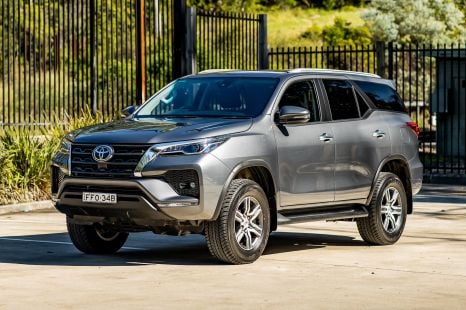

Matt Campbell
5 Days Ago
The all-new Honda ZR-V is a mid-size SUV that fills the gap between HR-V and CR-V with a few compromises – so is it worth considering?
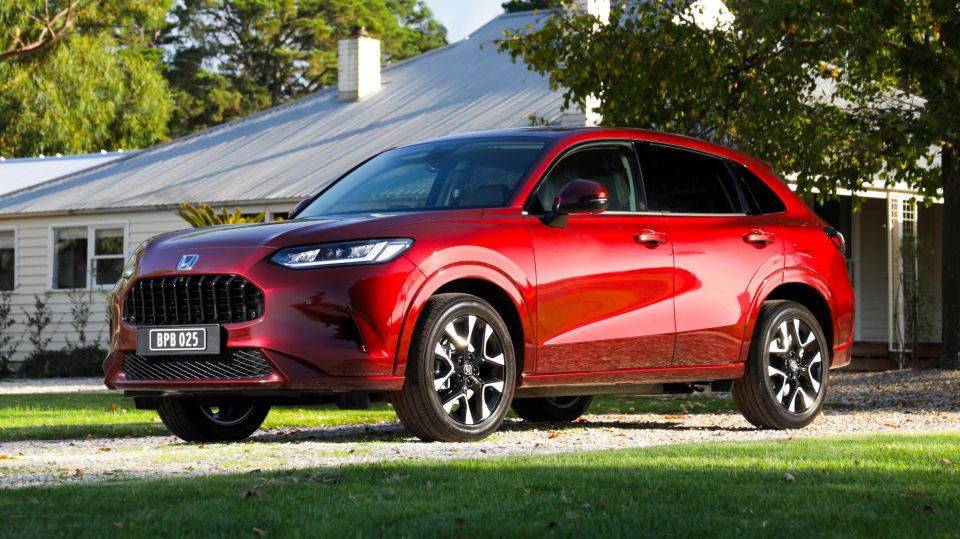
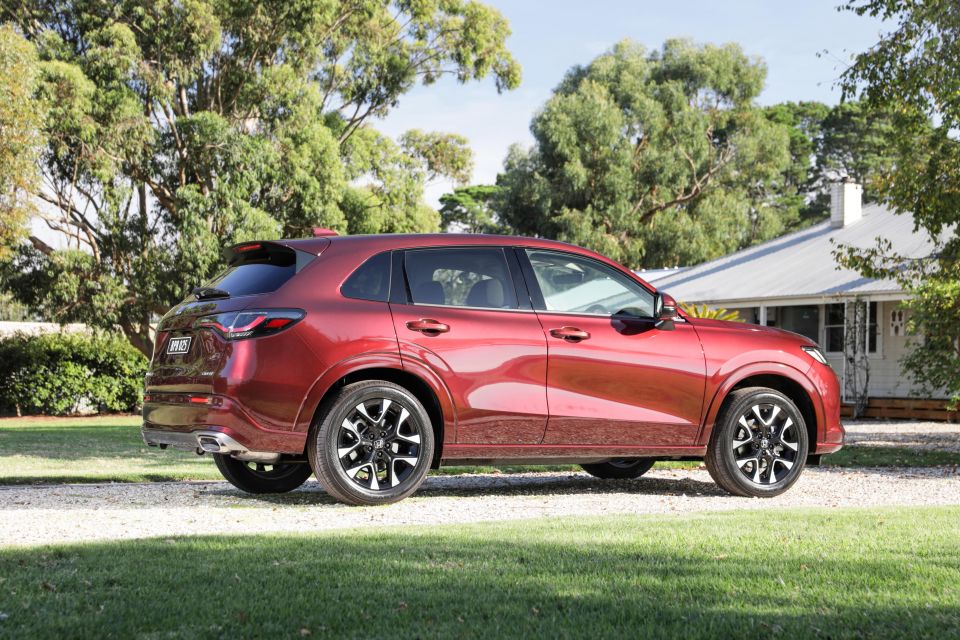

Quickly see how this car stacks up against its competition. Select any benchmark to see more details.
Take advantage of Australia's BIGGEST new car website to find a great deal on a Honda ZR-V.
The Honda ZR-V is the first all-new nameplate for the brand in more than two decades, and it has an important job on its hands. In fact, it’s arguably the most important model for Honda in that time – period.

That’s because the ZR-V sits above the now-less-practical HR-V small SUV, and below the larger next-generation CR-V. So, it’s the gap-filler… the model that is most closely sized and priced to, say, a Mazda CX-5 and Toyota RAV4.
Yep, this is the heartland of family SUV sales. Medium, or midsize, SUVs is where this new model plays, and with a choice of turbo petrol or hybrid power, it seemingly has some of the right ingredients on paper.
But there are some considerations that potential buyers need to heed before getting into a new ZR-V. I’ll cover them off in this review, which was based off a launch drive where I sampled three of the four variants – and, in my opinion, the hybrid is not the one to choose…
Let’s get on with it!
There are four versions of the Honda ZR-V at launch, three of them petrol, and the top-spec is hybrid.
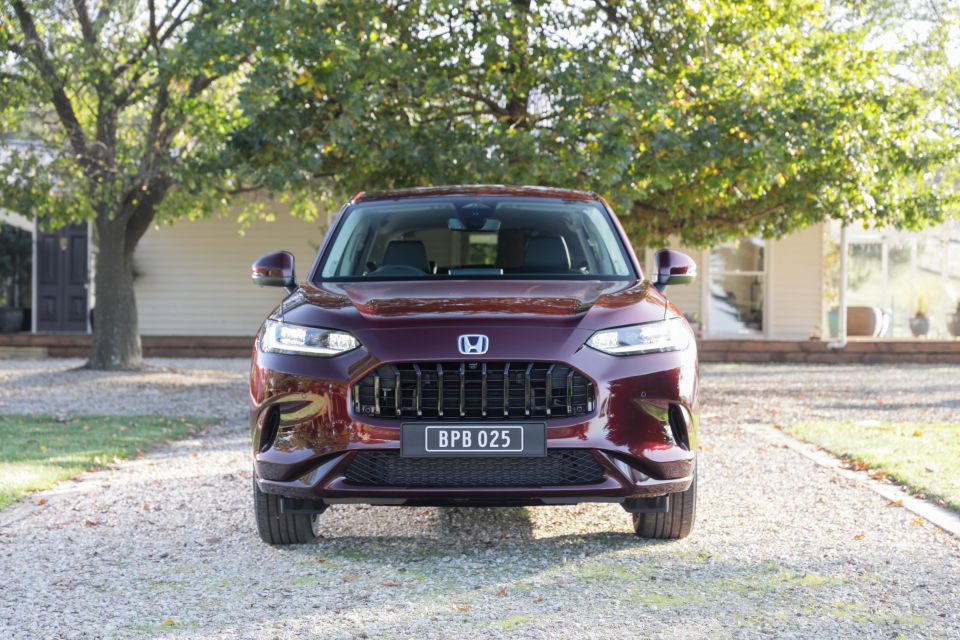
Here are the prices – and note, these fall under the “Honda Price Promise” plan, whereby all dealerships have to charge the same drive-away cost, no matter what.
2023 Honda ZR-V pricing:
Prices are drive-away
Those prices mean this model starts at a higher point than say, a Mitsubishi Outlander, Nissan X-Trail, Subaru Forester or Toyota RAV4 – well, pretty much all the other big-brand midsize models.
But note, those others have MSRP, or list pricing, and on-road costs and dealer delivery fees aren’t covered in those prices… so this isn’t ‘bad value’ when you take that into consideration, and when you think about what comes standard from the base grade up. There’s a rundown on the spec highlights below.
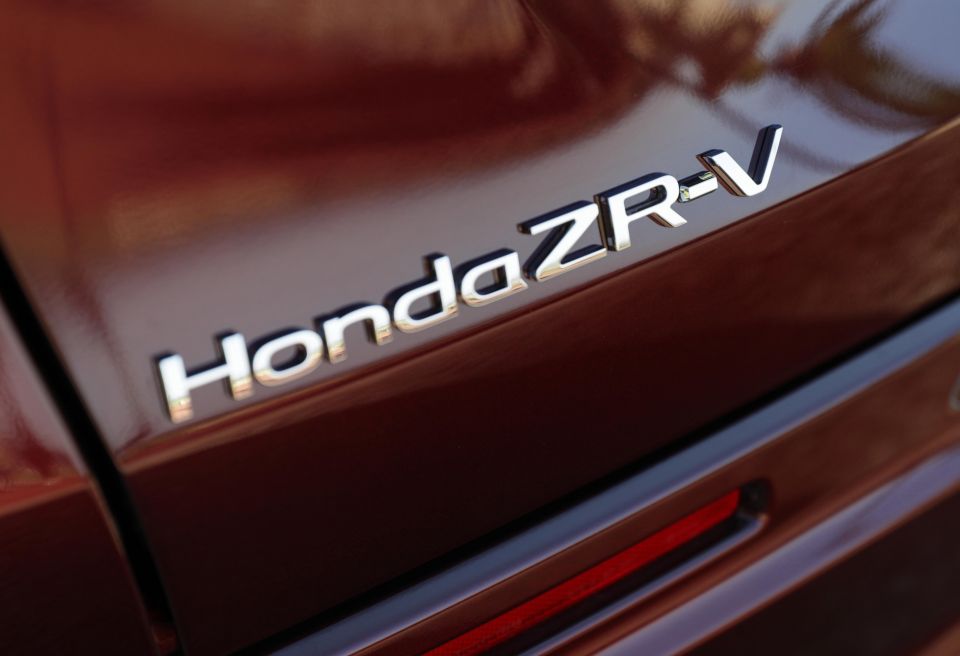
One thing that I really like about Honda all colours are no extra cost. That means you can choose between Premium Crystal Blue metallic (not on VTi X) Crystal Black metallic (not on VTi X), Platinum White pearlescent, Platinum Grey metallic, and Premium Crystal Garnet metallic, which is the hero wine-red colour seen here.
Also, while there are no added-cost options for the range, there are a few interesting accessory packs that you might want to consider, such as the Illumination Pack, which is $1908 fitted and includes lighting for the footwells, cup holders, door sills and puddle lighting, as well as carpet mats.
Other accessories include a front aero bumper upgrade ($940), tow bar kit ($1345), side steps ($1290) and roof rack crossbars ($690).
If you’ve sat in or seen any new-generation Honda models, then the ZR-V is going to feel familiar to you.
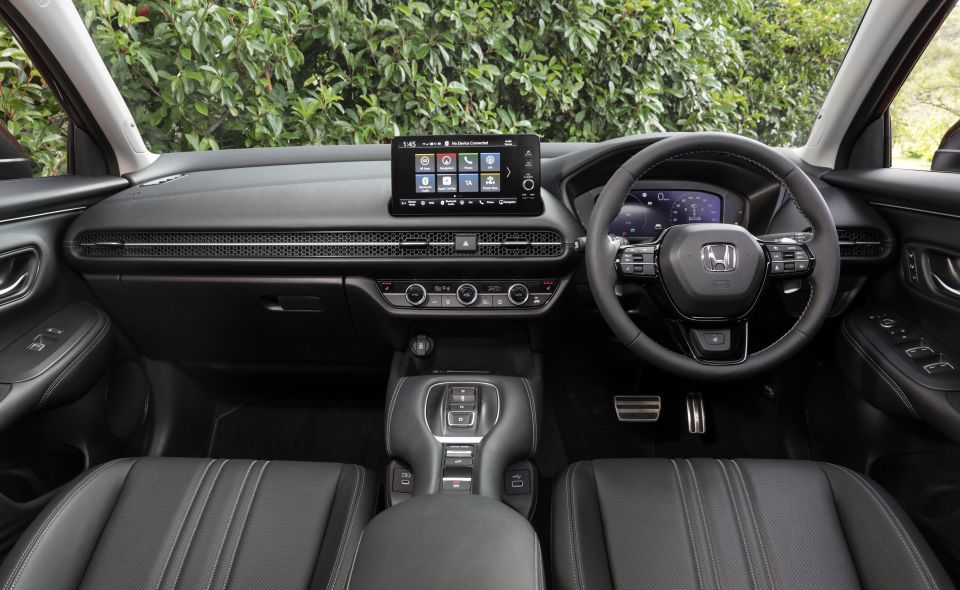
In fact, it might feel a bit like deja-vu, because wow, the brand really is going hard on the whole ‘copy + paste’ thing for interior designs. And hey, I’m okay with it, because the interior is a lovely place, with quality materials, nice finishes, and some of the nicest controls in any new car.
By controls, I mean the tactile things – the knobs for the climate control system, the buttons for the menus, the fact there are buttons to help you jump around the media screen… it all just works well, and the little ‘click-click-click’ as you turn the dials is truly quite lovely.
So you know now that I’m a big fan of tactility and quality-feeling stuff, and the materials used in each of the grades also lives up to that.
Even the base VTi X with its cloth-trimmed seats feels far more special than some other base-grade SUVs, while the retro-couch-inspired look of the VTi L, with its part-leatherette finish, is also pretty lovely.
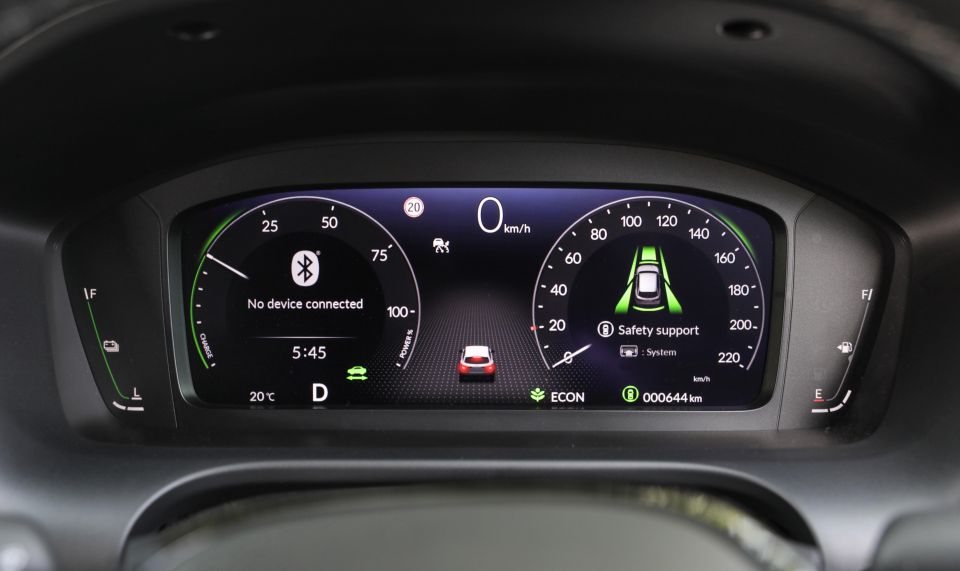
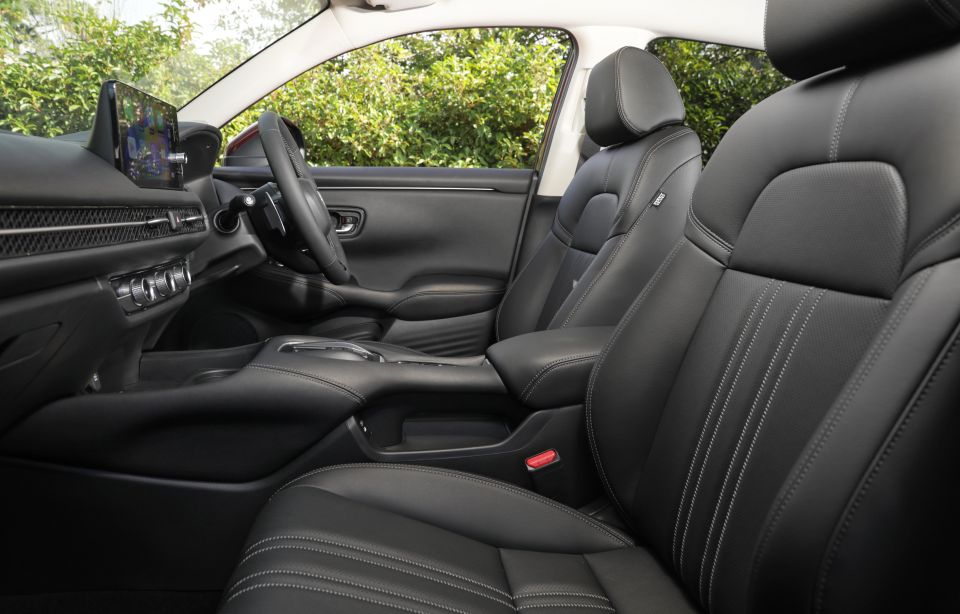
In fact, the lower-spec models make the LX grades feel a bit dowdy. Sure, those feature leather-appointed trim with perforated elements, but they are just a bit… plain and predictable, and definitely a bit less special than the lower models.
As for the tech, the 9.0-inch touchscreen media system is really easy to get to grips with, thanks to a pretty and simple menu design, and the fact there are buttons to jump between things. The screen, while quite high-res and quick to load, is a bit small by 2023-and-beyond standards.
The driver info screen is bigger, at 10.2 inches, and it has a fair host of information on it. I just struggled a bit with the menus and interaction with that screen. I did in the last-gen Honda products too, so maybe it’s just me.
Storage is decent through the cabin, with a storage tray (with smartphone charger in high grades) in front of the shift buttons, a pair of cup holders between the seats, a ‘dog bone’ shaped centre console area with a pair of USB ports and a small storage tray underneath, a covered centre console bin, and there are bottle holders in the front doors, too.
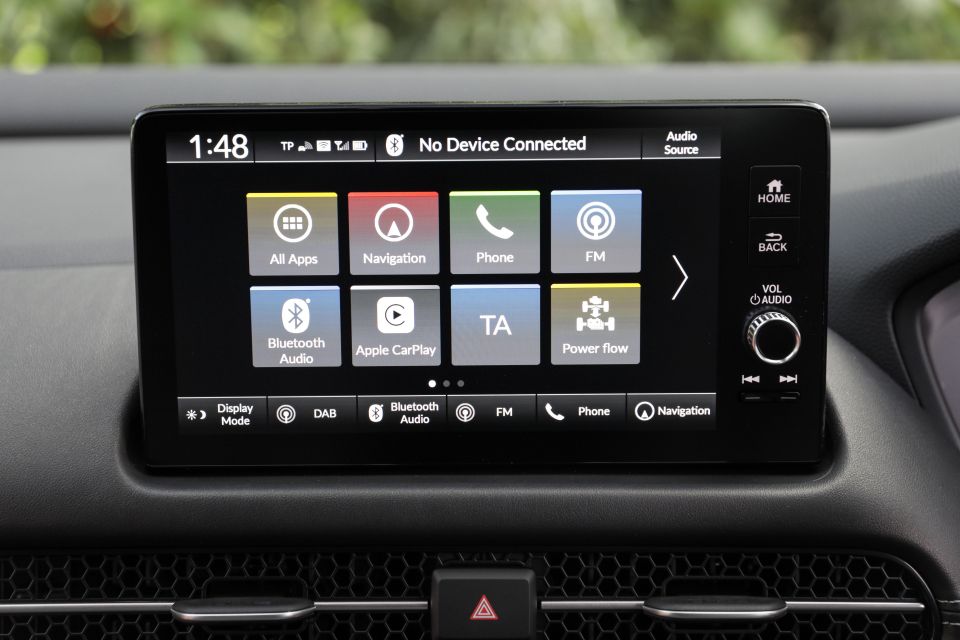
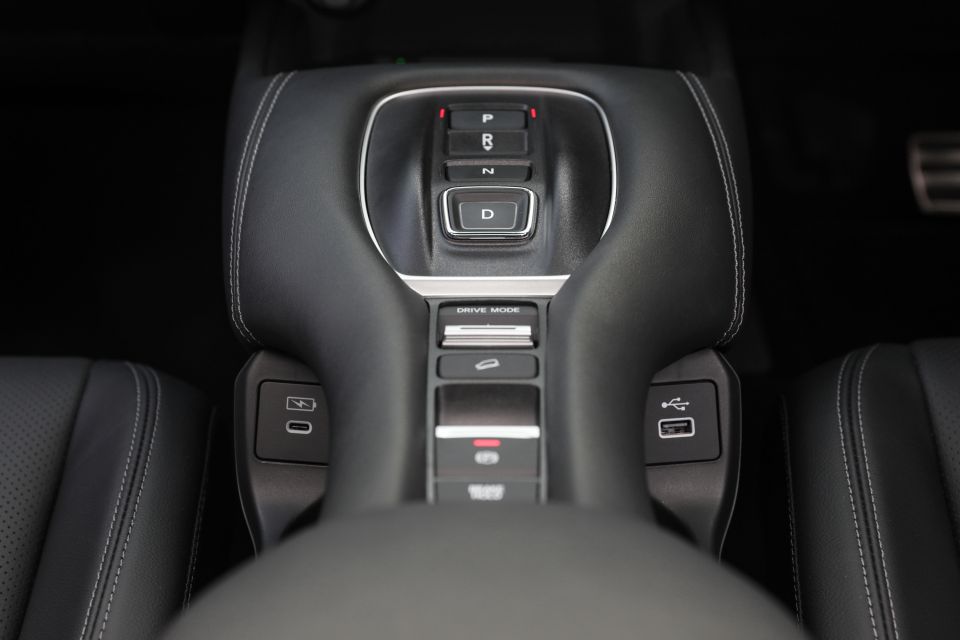
In the back, the storage is pretty good as well – there are bottle holders in the doors and map pockets on the seat backs, and all grades have a set of flip-down cupholders and armrest in the back, too.
Plus, even better, is that all grades score directional air vents, and a pair of USB-C ports for those in the back. Choose the LX versions and outboard rear-seat occupants get seat heating. Nice.
Space in the second row is good for adults – I had enough space to slot in behind my driving position, and at 182cm/6’0” tall, that’s not something I can do in all midsize SUVs quite so easily.
I had ample leg, foot and toe room, though the floor height is quite high, so it’s something of a “knees-up” position for long-limbed back-seat riders. Also, the door apertures are quite narrow at the bottom, so those with big feet (US 12s for me) will find it a bit annoying getting in and out.
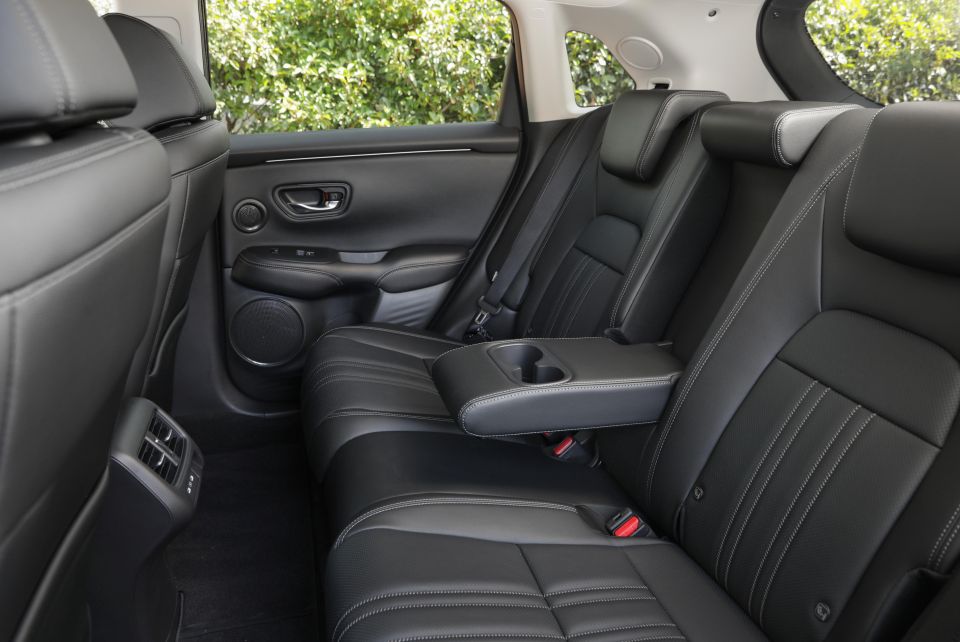
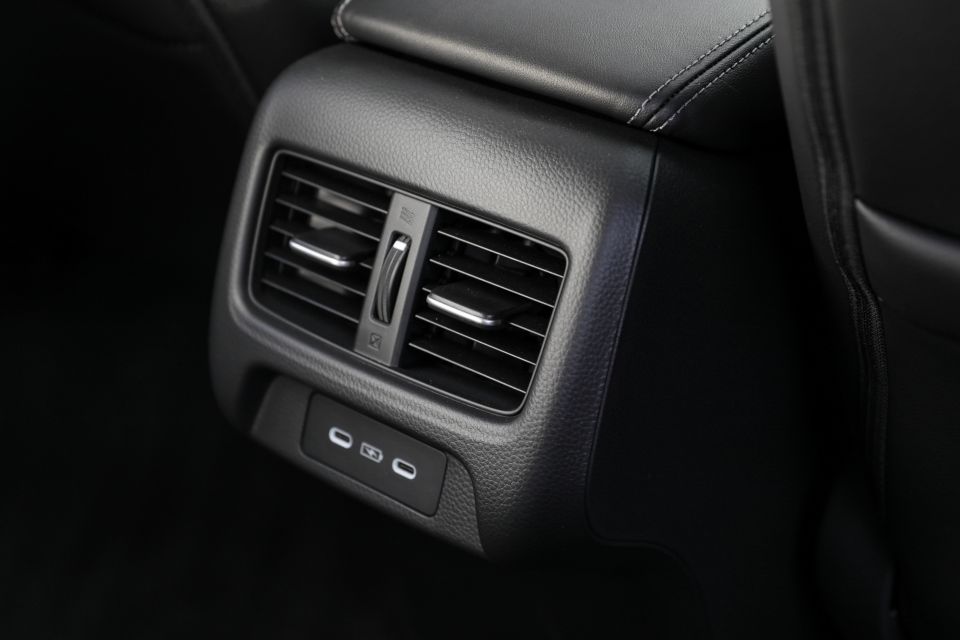
If your back-seat passengers are much younger and smaller, then you’ll be happy to note there are ISOFIX points for the window seats, and three top-tethers as well. Just note the middle top-tether is a ceiling-mounted one, and the middle-rear seatbelt is ceiling mounted, rather than integrated into the seat.
The ceiling-mounted LED lights (VTi L and up) are bright and will be helpful loading kids in or out at night, though they might be too bright if you’ve got a cranky kid in transit.
And when it comes to boot space, there are some considerations you should think about, if you do have smaller kids.
This might be a lot larger externally than the HR-V, but the boot space isn’t all that generous. The official number is 370 litres for both LX models, and 380 litres for the others.
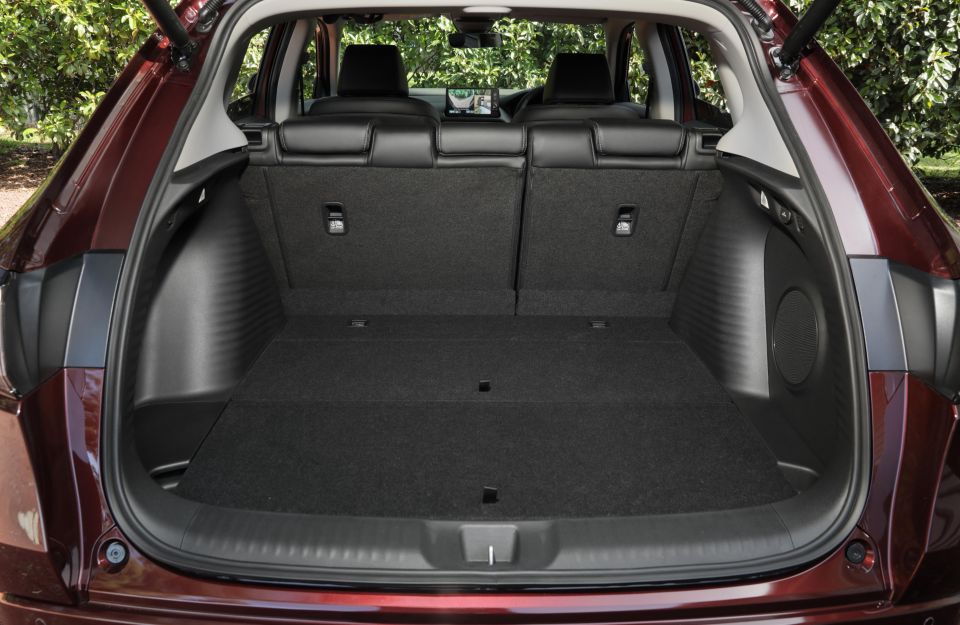
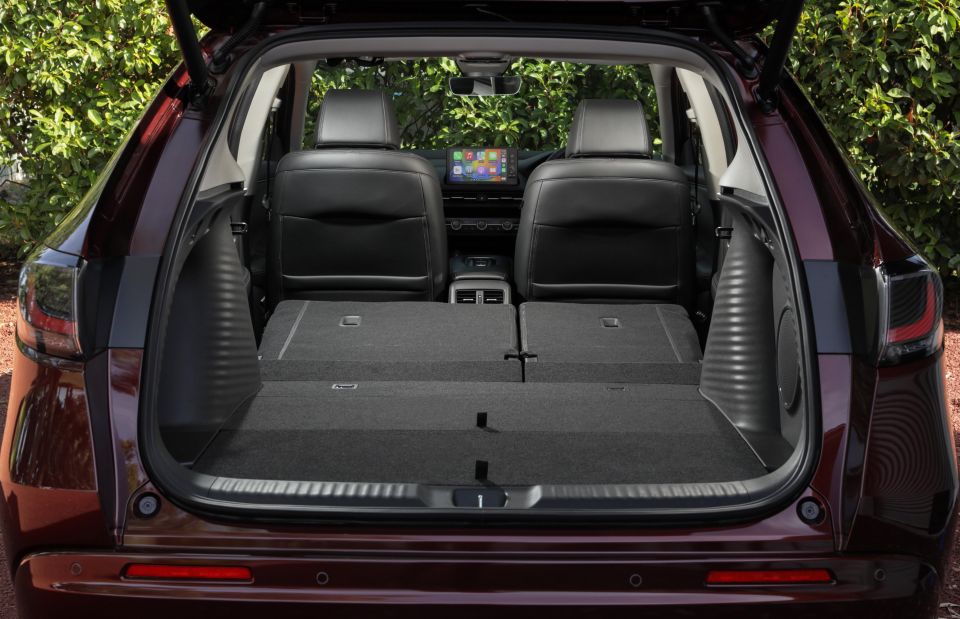
While you can read what you will into the claimed luggage capacities of different models, it is significantly less useful in terms of cargo space when compared with those main rivals, like the RAV4, X-Trail and Outlander.
I managed to fit my daughter’s pram in the boot and had a bit of room left over for additional luggage, but just bear in mind this is not nearly as practicality-focused as many other rivals.
There are some smart elements to the boot, though. If you need to remove the parcel cover – it’s a real one, not the silly retractable job in other Hondas – you can fold it up and stow it under the boot floor. And, the boot floor is in two parts, so you can partition a section off if you’ve been to the shops and don’t want your bags to spill all over the floor.
There’s a space-saver spare under the boot floor in petrol models, but the hybrid has a tyre repair kit – AKA can of goo.
The ZR-V has a choice of two powertrains – VTi versions are turbo petrols, and the e:HEV is a petrol-electric hybrid.
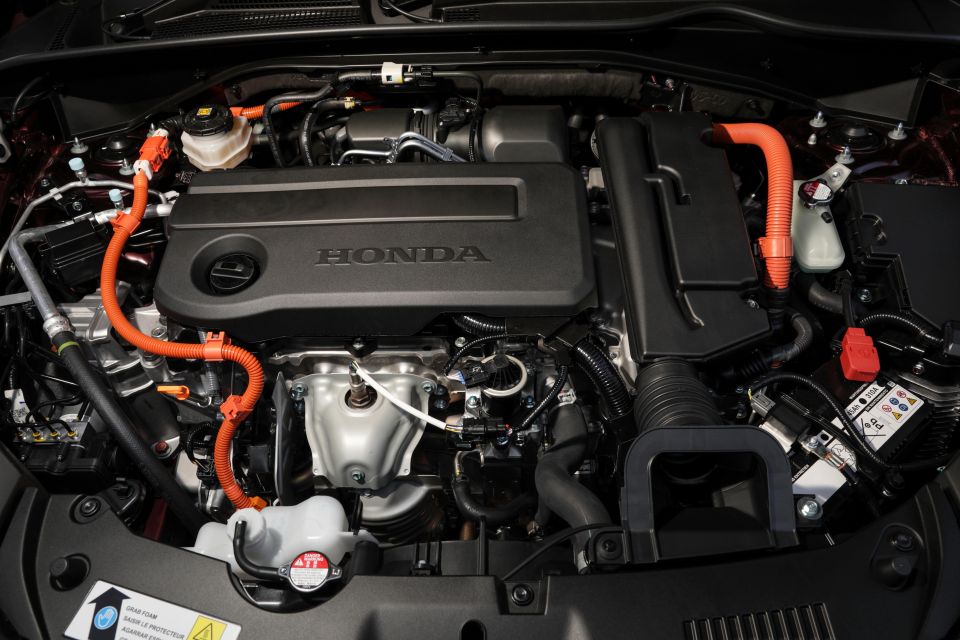
So, in the VTi X, VTi L and VTi LX, you get a 1.5-litre turbocharged four-cylinder petrolengine producing 131kW of power (6000rpm) and 240Nm of torque (1700-4500rpm). It is paired exclusively to a CVT automatic transmission, and it’s front-wheel drive.
The e:HEV LX model teams a 2.0-litre naturally-aspirated four-cylinder petrolengine with a pair of electric motors, an e-CVT automatic transmission and a lithium-ion battery pack mounted under the rear seats.
It’s front-wheel drive-only in Australia too. System outputs for the e:HEV hybrid are 135kW (5000-6000rpm) and 315Nm (0-2000rpm).
Those playing along at home will notice that the ZR-V runs the larger 2.0L hybrid powertrain as per the Civic, rather than the smaller 1.5L unit employed in the HR-V.
Look, I really liked the petrol models, but wasn’t quite as convinced by the hybrid.
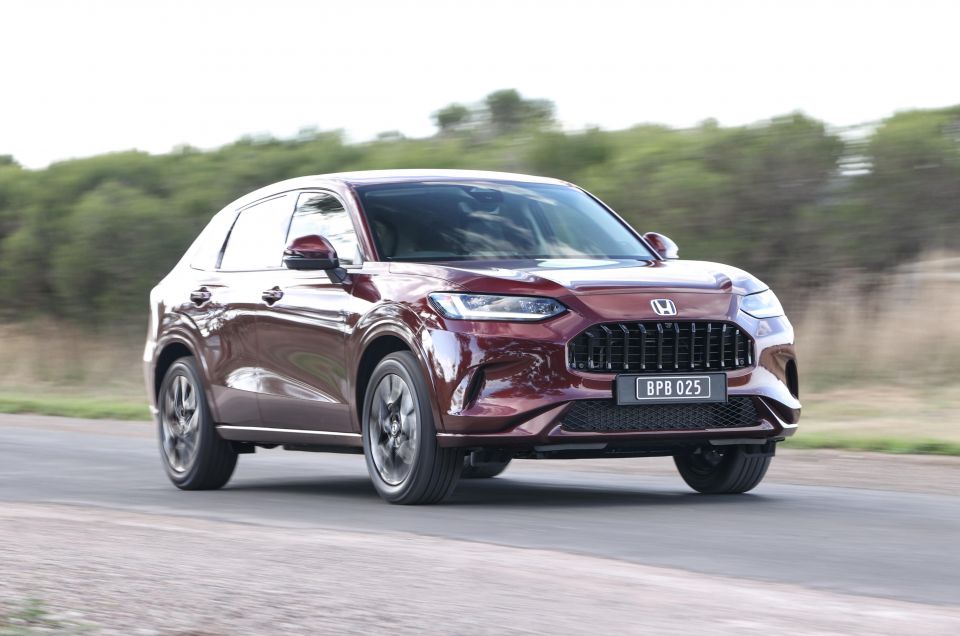
Yes, the petrol-electric powertrain is refined and it has a lot more oomph from a standstill, and yes, I’ve seen pretty good fuel efficiency from it too – thanks to the way it dips in and out of EV mode a lot.
But it just doesn’t feel as nice to drive. That could be the extra weight as it’s 116kg heavier, like-for-like, against the non-hybrid VTi LX; or the tyres which are Bridgestone Alenza as opposed to the VTi’s Yokohama Advan units.
It’s not bad to drive – not at all. It’s just the turbo petrol models feel considerably more zesty and willing in corners, and if you don’t care about corners then maybe the e:HEV will be suitable. But if you like a good drive, then the petrol models will be more up your alley.
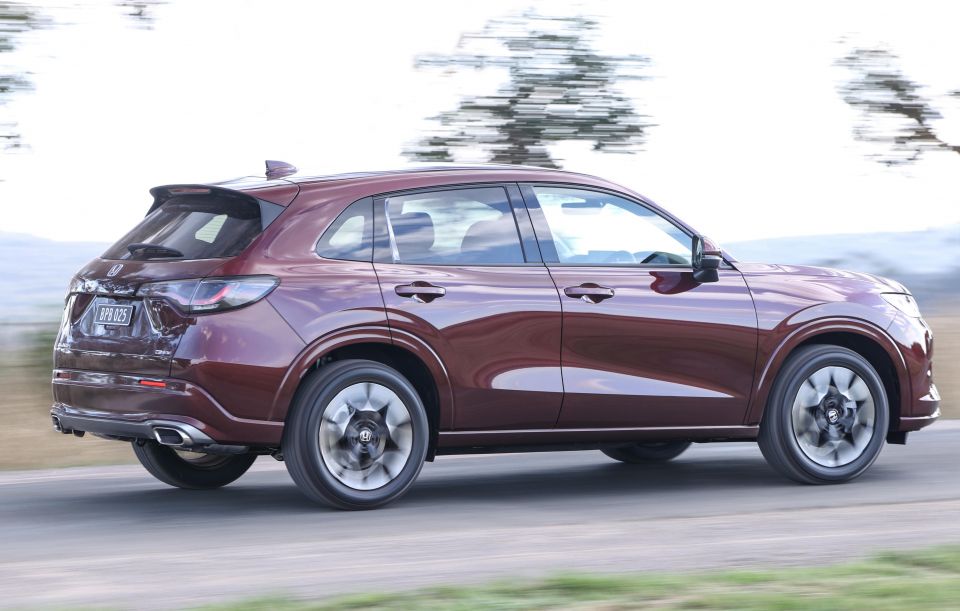
They feel more balanced in the bends, more eager to turn in the corners, and lighter in general, with a less bloated feeling in the really twisty demanding stuff.
While the turbocharged VTi models are definitely going to be zippy enough for urban and open-road driving, it’s not as ‘of-the-mark’ speedy as the hybrid, which has the electric motors allowing it to punch away from a standstill in EV mode using battery power, before calling on the petrol engine to back things up.
It does that switch between EV, petrol or both almost imperceptibly at pace, while at lower speeds you can hear when the petrol engine is buzzing away, which it often does from idle as things get moving.
But honestly, if you’re unsure of whether the hybrid is worth spending more for, I’d say you’d have to really want it, because the turbocharged petrol is a really nice powertrain.
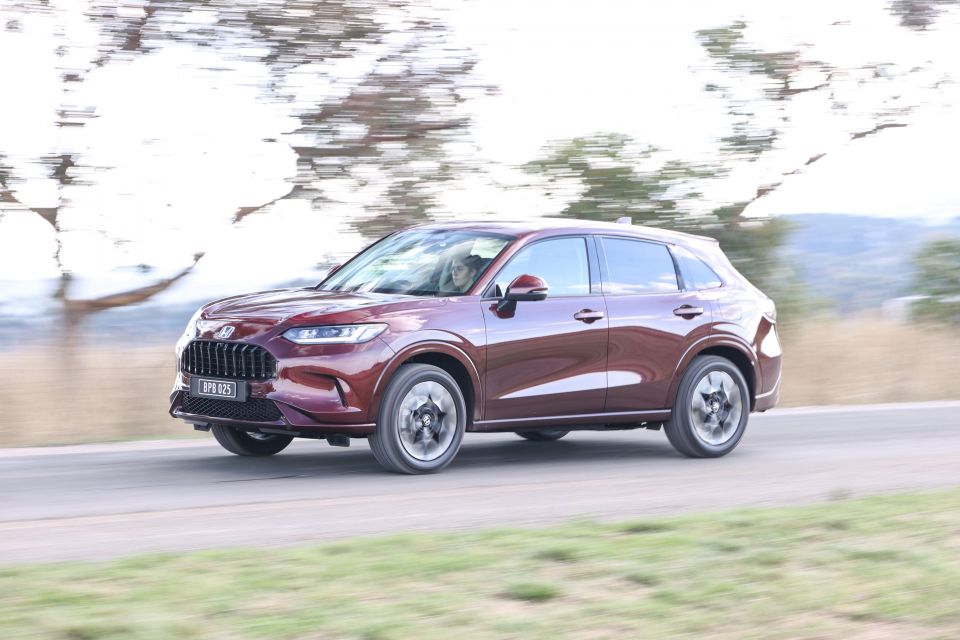
The engine has ample grunt – remember, this is the same powerplant that did service throughout the life of the current-gen CR-V – so you can rest assured that it doesn’t feel slow, despite the fact the CVT can make it sound like it’s working hard under throttle.
The auto is otherwise pretty likeable, despite offering up a few telltale CVT traits like the occasional bit of chugging when you get back on the gas.
All models have a decent level of ride comfort and composure on offer as well; though again, the hybrid feels a bit more wobbly at times while the petrol models I drove were decidedly more confidence-inspiring by comparison.
Refinement, in terms of noise, vibrations and harshness, is pretty decent as well, though again it was noticeable to me the hybrid offered just a bit more tyre-induced road noise intrusion than the petrol.
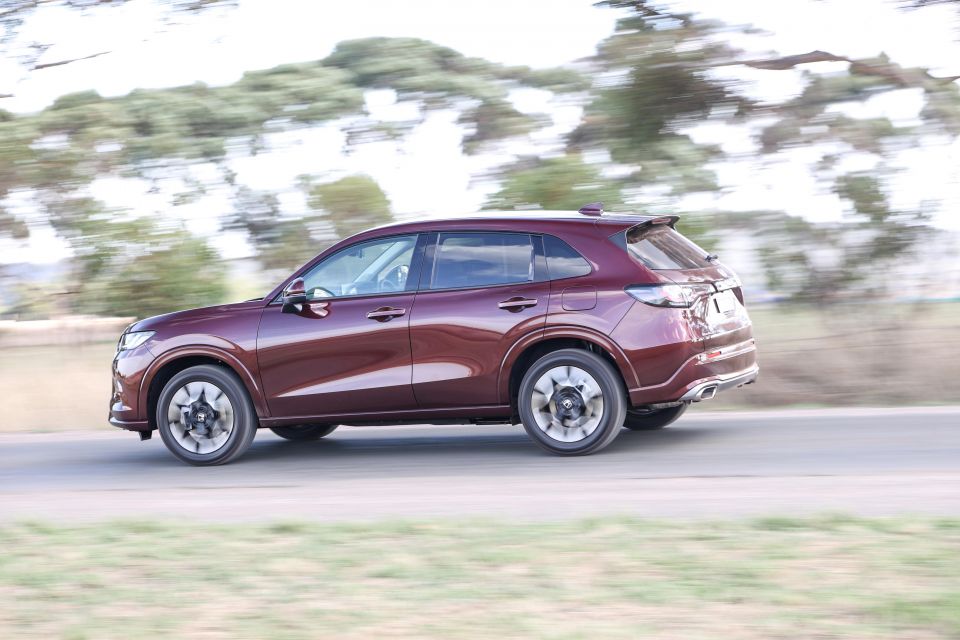
I also thought the brake response and feel was better in the petrol versions — in the hybrid there’s a bit of a squishy response, thanks to the regenerative braking setup.
In case you can’t tell, I think the petrol versions are the better choice. But see the running costs section down below to see if you think the fuel savings the hybrid offers (on paper, and in actuality) are worth the compromise…
I reckon the ZR-V is pretty handsomely equipped from the base grade up – so much so, in fact, that some buyers mightn’t need to spend much more than just getting into the base VTi X.
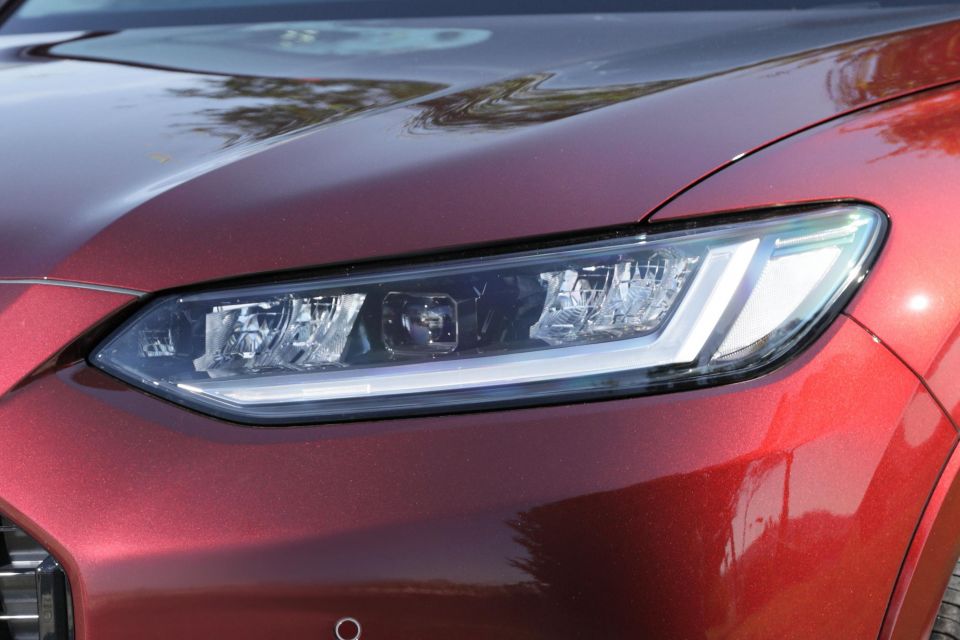
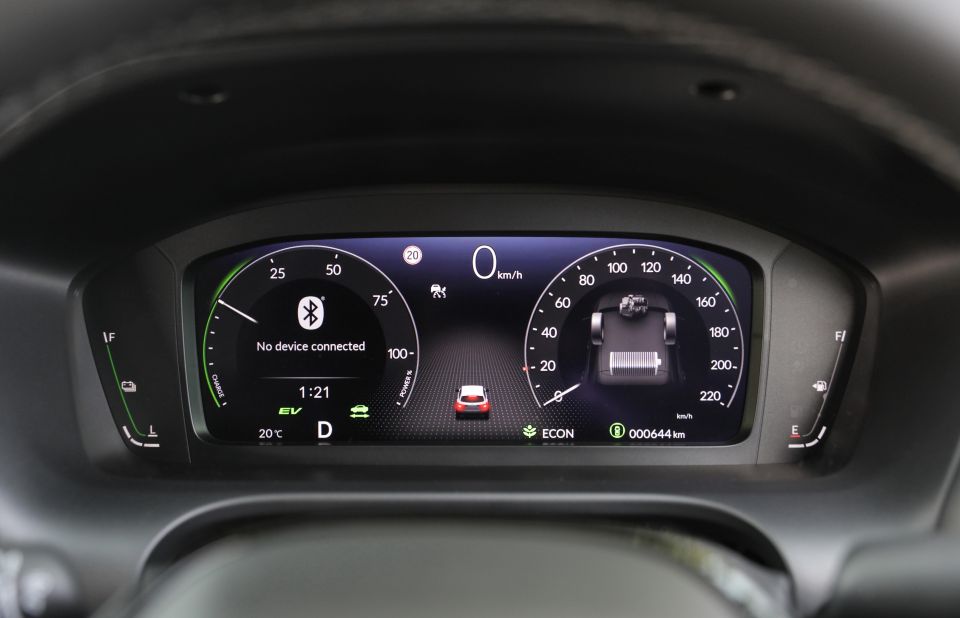
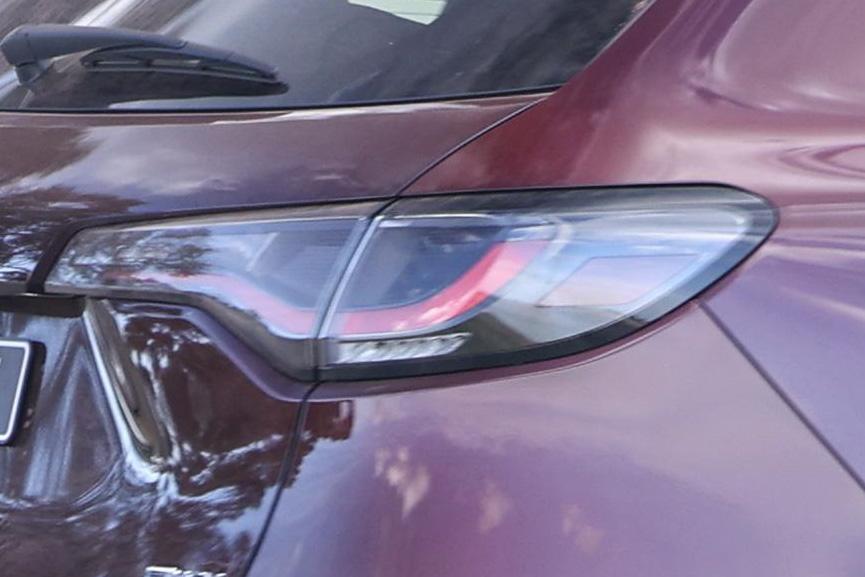
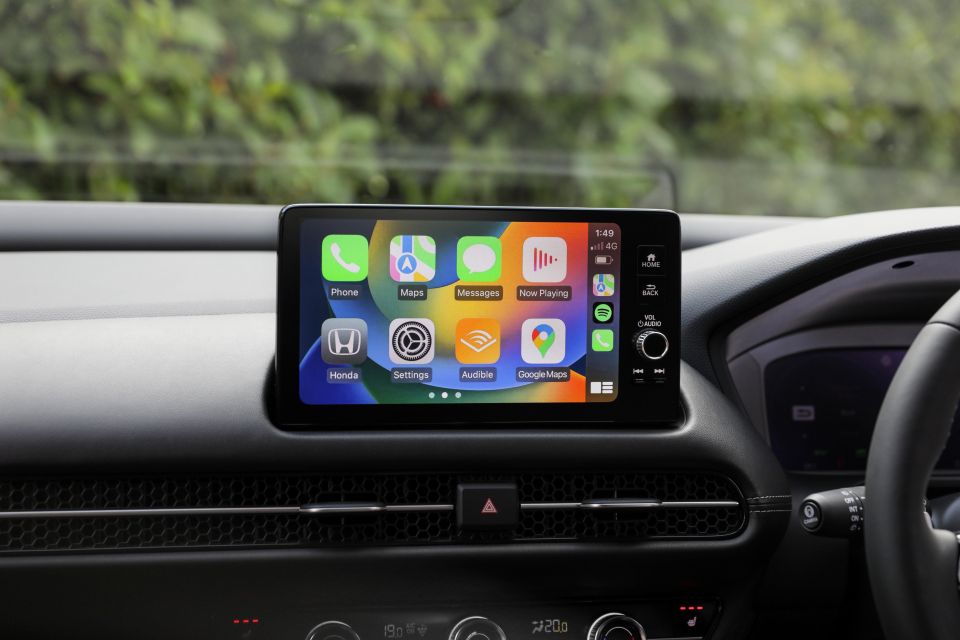
Even so, I can’t help but think that the added safety tech and convenience features in the LX grade will skew more buyers up to that trim level – let me know your pick in the comments.
ZR-V VTi X highlights:
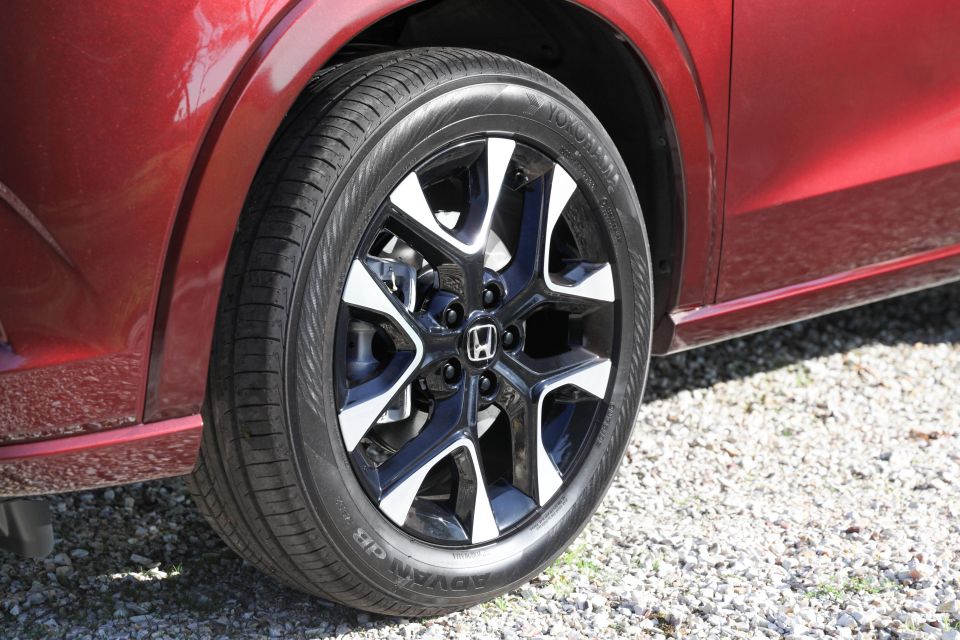

ZR-V VTi L adds:
ZR-V VTi LX adds:
ZR-V e:HEV LX adds:
There is no ANCAP or Euro NCAP rating as yet for the ZR-V – Honda says it is expecting a safety score to be published sometime this year.

However, it does come relatively comprehensively equipped when it comes to safety tech.
Standard safety equipment includes:
ZR-V VTi LX + e:HEV LX add:
Most other brands are now including blind-spot/RCTA as standard, but this strategy is in keeping with Honda’s “only the LX gets the best stuff” approach, as seen on the HR-V and Civic.
Let’s cover fuel use first.
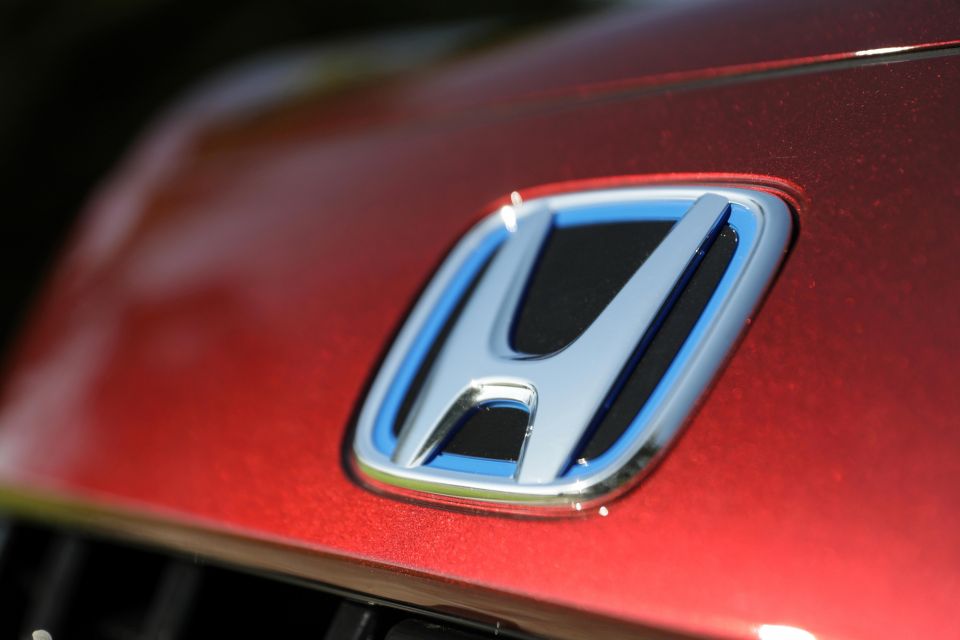
Honda says the ZR-V e:HEV LX should use 5.0 litres per 100 kilometres. That’s the official combined cycle fuel consumption number, at least. In my testing – which included a few hundred kays of driving in the hybrid – I saw 5.2L/100km. Not too bad.
If you don’t want a hybrid and you’re doing the maths on whether the petrol models will be efficient enough, well, they’re pretty frugal. The official number for the 17-inch-wheel-clad VTi X is 7.0L/100km, while the VTi L and VTi LX (on 18s) have a slightly higher 7.2L/100km claim.
On the launch drive, I noted an on-screen figure of 7.8L/100km in the VTi LX. You can do the sums for yourself, but by my reckoning, you’ll get a lot of petrol for the minimum $6400 you’d save by not choosing the hybrid.
All versions come with a 57-litre fuel tank, and all can run on 91 RON regular unleaded.
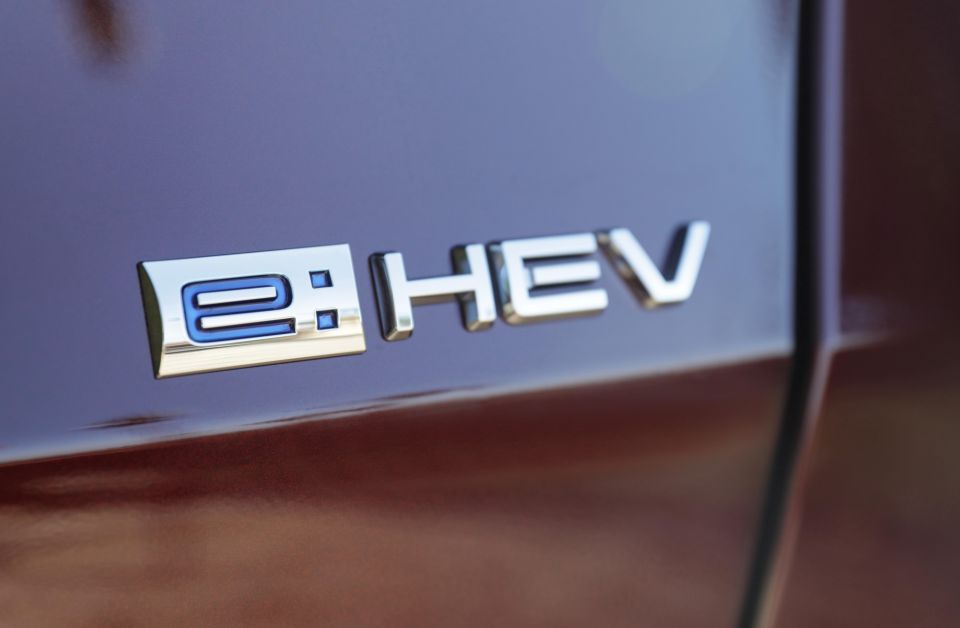
What about long-term ownership details? There’s a five-year, unlimited kilometre warranty across Honda’s range, as well as five years of roadside assistance.
When it comes to maintenance, the brand offers its “5 low price” services for the ZR-V, which means the first five services are just $199 each. That’s very affordable, but you need to know that the service intervals are every 12 months/10,000km.
It’s also worth mentioning that if you buy a version with sat nav fitted, you get five years of map updates included, and the brand’s new Honda Connect telematics subscription is included for five years, too.
That allows you to use web-based data services, smartphone app connectivity, over-the-air updates, and 24/7 collision detection that can call emergency services for you if you’re in an accident and cannot respond or make a call for help.
There is a fair bit to like about the new Honda ZR-V, but it maybe isn’t a slam dunk it might need to be in order to challenge the best midsize models in the class.
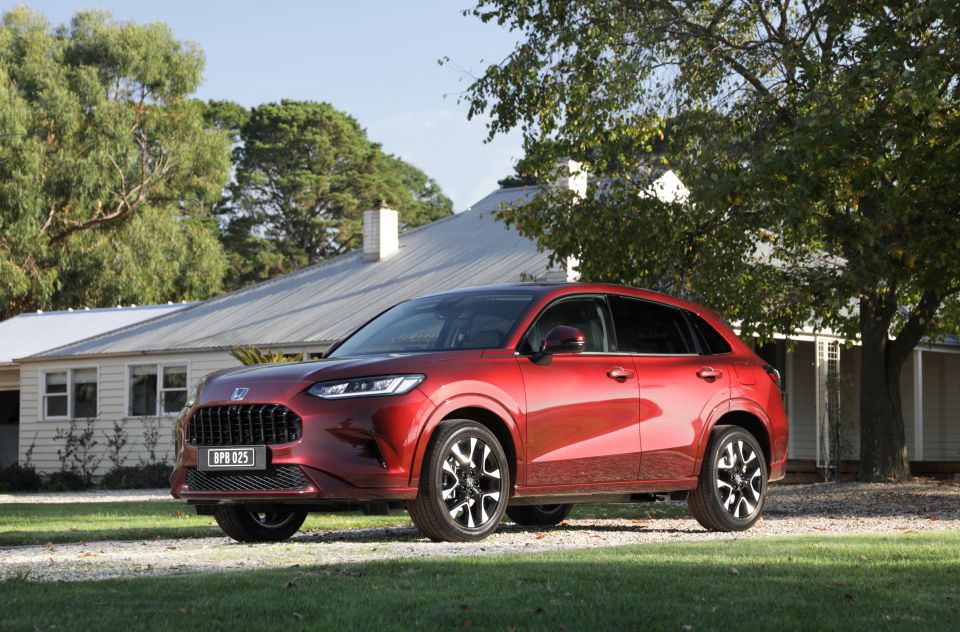
It isn’t as practical or as affordable as most of its big-name rivals, but it has some really pleasant applications in terms of infotainment technology, and the simple but effective cabin controls are a delight.
There’s a lot to like – I just think it’s easier to like the lower-grade turbo-petrol versions, personally.
Click an image to view the full gallery
MORE: Everything Honda ZR-V
Take advantage of Australia's BIGGEST new car website to find a great deal on a Honda ZR-V.
Matt has more than a decade of experience in automotive journalism, and loves exploring the pros and cons of new cars, delving into deep-dive industry stories, and going for a drive just for the fun of it.


Matt Campbell
5 Days Ago
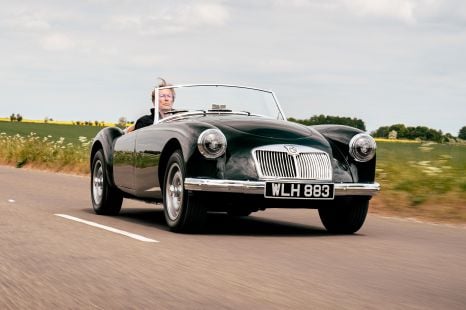

Angus MacKenzie
4 Days Ago
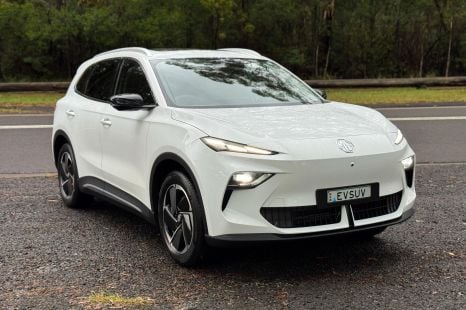

Matt Campbell
3 Days Ago
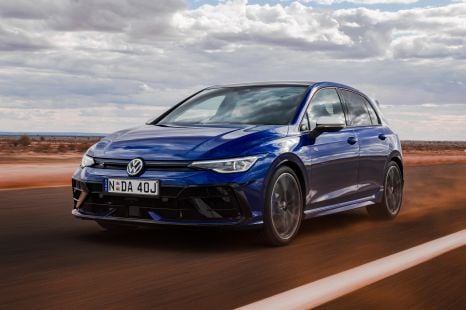

James Wong
1 Day Ago
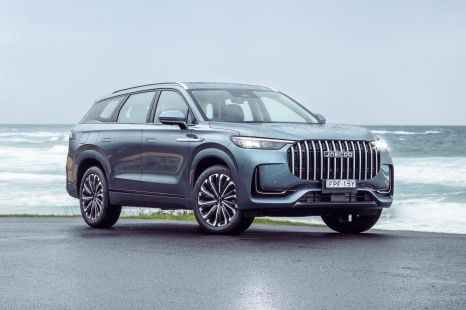

William Stopford
17 Hours Ago
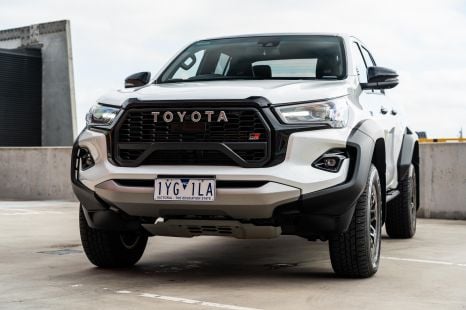

William Stopford
16 Hours Ago